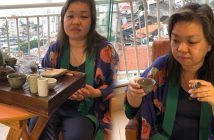Spanish franchise of gourmet teashops believes that the biggest expansion will come from the young, avid audience for healthy products
Created 28 years ago in Spain by the Swedish Per Sundmalm, the Tea Shop, a franchise of gourmet teas shops, is betting on the Brazilian market to grow. With 58 addresses in Spain, in addition to being present in Italy, Argentina and also beginning operations in Portugal, the Tea Shop is going through a moment of great expansion in Brazil.
On a visit to Brazil, to attend the First Sales Convention of the brand, the CEO and founder Per Sundmalm, talked exclusively with Grão Especial.
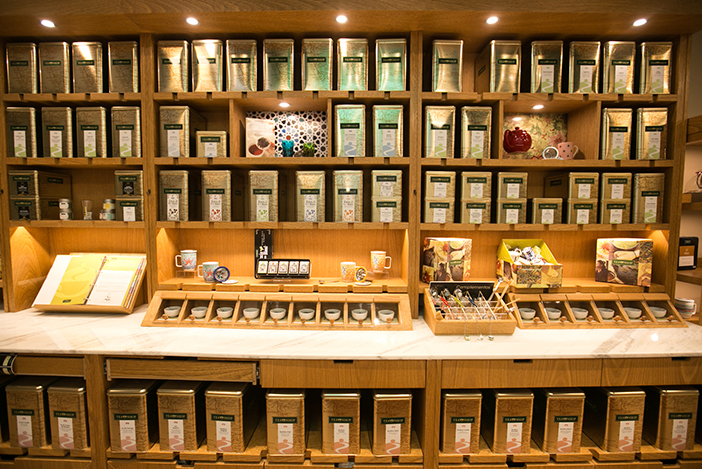
A Tea Shop tem mais de 150 diferentes tipos de chás
Just as many Scandinavians flee from the cold, Per Sundmalm “sailed” to Barcelona to warm up and continue his studies after the university’s end. There was a desire to learn another language, Spanish, once he had already mastered English, German, and French in addition to his native language.
Living with numerous foreigners, he realized that in Spain there was no habit of drinking tea, except in cases of malaise, but never to taste them. And the teas they had were of poor quality. Part of the explanation is that after the Spanish Civil War, a very strict legislation remained for importing tea. While the country had very easy access to coffee produced by its former colonies in Central America.
Per returned to Sweden, but did not abandon the idea of working with the teas. He met in Stockholm a small trader from Sri Lanka, an expert on teas, who encouraged him in the initiative. Per, then, returned to Spain, with a showcase under his arm, which he managed to present to several supermarkets that believed the idea.
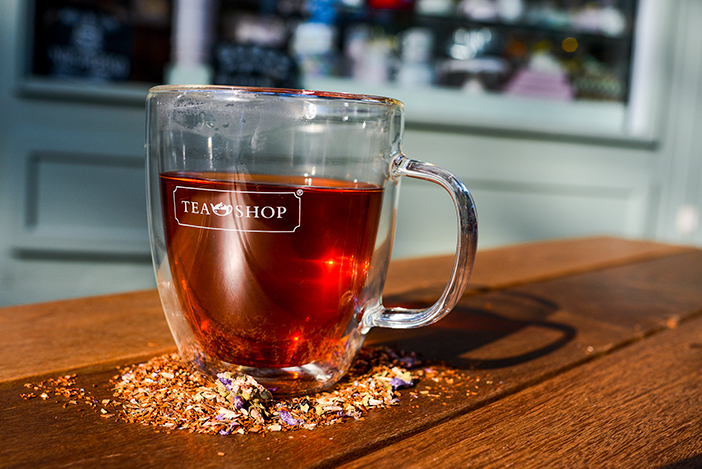
Eu bebo um café da manhã e ao longo do dia, bebo dois litros de chás por dia. Começo com um po’er, depois chá verde tea e à noite, herbal, sem cafeína, para não ter problemas para dormir
Nonetheless, without a strong culture of tea consumption in the country, the initiative failed. “I thought that since the whole world drank tea, it was just a matter of putting it on the supermarket shelf and waiting to take orders. It never occurred to me that I should have done something convincing, to inform consumers about the benefits of the beverage. I really hoped that consumers, one day, out of nowhere, would wake up desiring to drink tea! As they say in Brazil, I flopped”, he says.
Per took his showcase and returned to Sweden very disappointed, but with the fixed idea that the teas would be his future. He studied the subject further and noticed, watching large companies in the area such as Twinings and Lipton that, two hundred years ago, these brands began their empires with small shops, teaching first the British and then the world, the secrets of tea.
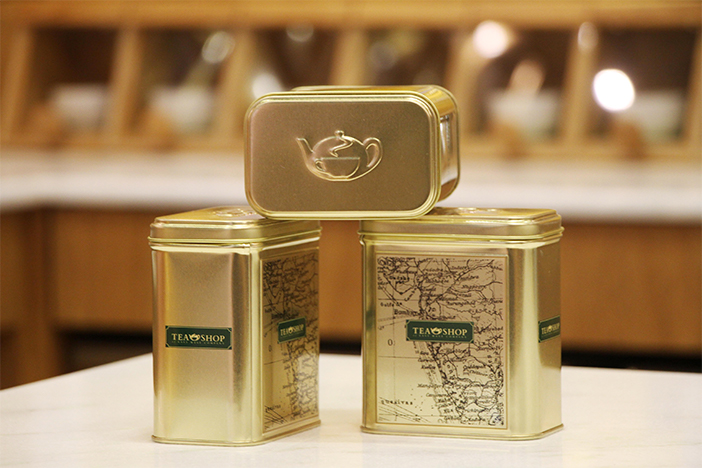
Baunilha é o sabor preferido dos chás vendidos na Espanha pela Tea Shop. Já no Brasil, os preferidos são os de frutas tropicais
“I discovered that, to start in Spain, I needed to open a small shop and teach, little by little, what tea was, presenting its various types, blends, teaching how to prepare them properly etc. Anyway, it was a more communicative work with customers than sales themselves. And I needed to understand, too, the differences of taste between the Scandinavians, the British and the Spaniards,” he recalls.
He chose the Gràcia neighborhood in Barcelona which, as Per describes, resembles Soho in London. The place was once an independent village and today is one of the most vibrant neighborhoods in the city, with its contemporary art workshops, specialty kitchens, bars and coffee shops, antique shops and pulsating nightlife. He found a townhouse, opened his first shop downstairs and occupied the rest of the house to live in it.
The second address did not go well and, only after three years, he opened the first one inside a shopping center, the Island, in 1993, when he became successful. Currently, there are 58 stores in Spain, one in Italy, Argentina and another one beginning operations in Portugal.
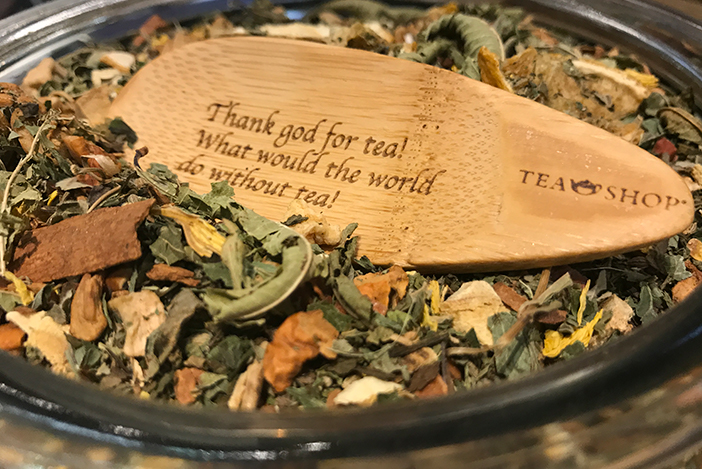
Diferentes ingredientes, antioxidantes e smothies têm obtido grande sucesso de vendas.
“With our profile, mixing the blends with the herbs and everything else, I believe that our vocation is to be a brand of Mediterranean country teas, with sun, heat and a more modern approach compared to the more traditional tea houses, as tea can be drunk in many ways, including ice cream. And consumers have to find the way that pleases them best, without ties and without prejudice. This is the trend,” he says.
Brazil
The Tea Shop was growing and consolidating in Spain until Per was presented to Brazilian Michel Bitencourt, who was studying at the university and needed a tutor for his thesis.
The friendship progressed and Michel came to know more about the Tea Shop and to believe that it had everything to do with Brazil. But only after eight years, did the two feel ready to endeavor here. Michel is currently the Brazilian CEO and sommelier of the brand. It worked out!
Adopting a franchise model, the company will close 2018 with 27 stores spread throughout the cities of São Paulo, Rio de Janeiro, Belo Horizonte, Salvador, Porto Alegre, Fortaleza, Goiânia, Florianópolis, Recife, Vitória, Santos, Gramado, Balneário Camboriú and Canoas.
With annual sales of R$ 16 million, the idea is to grow the business in Brazil and study some proposals in Chile, Peru and Mexico. “But, for now, let us focus here, as this country has an immense growth potential, despite the economic problems that the country has gone through,” he explains.
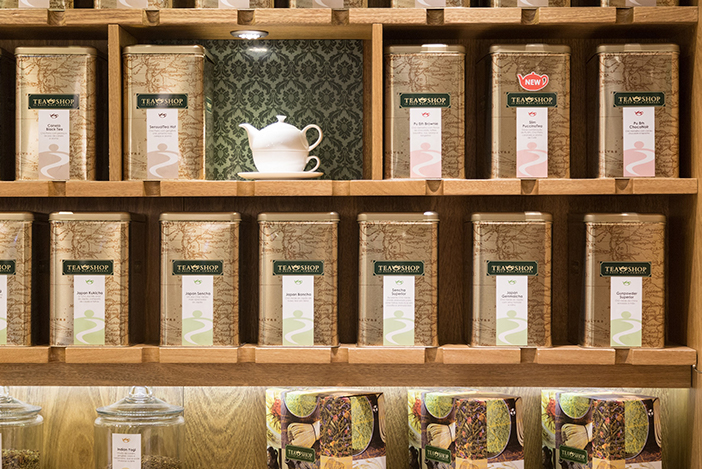
Países como Austrália, Singapura e Japão também estão no radar de Per Sundmalm
As for the next five 5 years, the goal of the Tea Shop is to open up another 80 stores. “Part of our success has to do with being curious. We like to mix the flavors in an amazing way. If possible, we want to make blends using different Brazilian ingredients. Let’s wait and see,” he concluded.
Consumption of teas in Brazil
A survey conducted in Brazil by the media analysis agency E. Life, identified a 168% increase in online searches for the term “tea” between 2011 and 2016.
A survey by the Euromonitor Institute, in a study released in 2017, shows that tea sales in Brazil have been increasing. Between 2010 and 2012, this market grew almost 30%, from US$ 288 million in 2010 to US$ 373 million in 2012.


